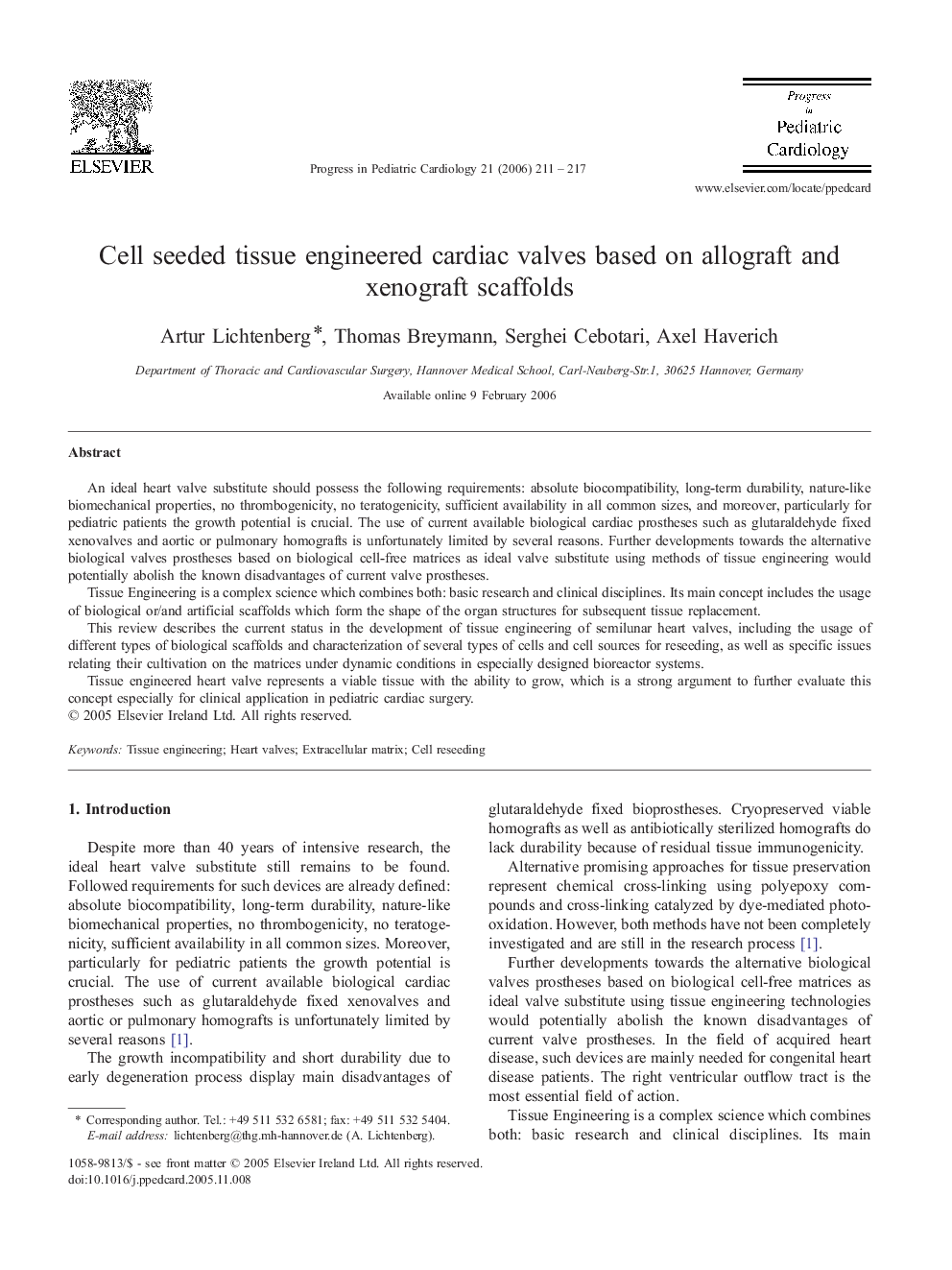| Article ID | Journal | Published Year | Pages | File Type |
|---|---|---|---|---|
| 3007415 | Progress in Pediatric Cardiology | 2006 | 7 Pages |
An ideal heart valve substitute should possess the following requirements: absolute biocompatibility, long-term durability, nature-like biomechanical properties, no thrombogenicity, no teratogenicity, sufficient availability in all common sizes, and moreover, particularly for pediatric patients the growth potential is crucial. The use of current available biological cardiac prostheses such as glutaraldehyde fixed xenovalves and aortic or pulmonary homografts is unfortunately limited by several reasons. Further developments towards the alternative biological valves prostheses based on biological cell-free matrices as ideal valve substitute using methods of tissue engineering would potentially abolish the known disadvantages of current valve prostheses.Tissue Engineering is a complex science which combines both: basic research and clinical disciplines. Its main concept includes the usage of biological or/and artificial scaffolds which form the shape of the organ structures for subsequent tissue replacement.This review describes the current status in the development of tissue engineering of semilunar heart valves, including the usage of different types of biological scaffolds and characterization of several types of cells and cell sources for reseeding, as well as specific issues relating their cultivation on the matrices under dynamic conditions in especially designed bioreactor systems.Tissue engineered heart valve represents a viable tissue with the ability to grow, which is a strong argument to further evaluate this concept especially for clinical application in pediatric cardiac surgery.
